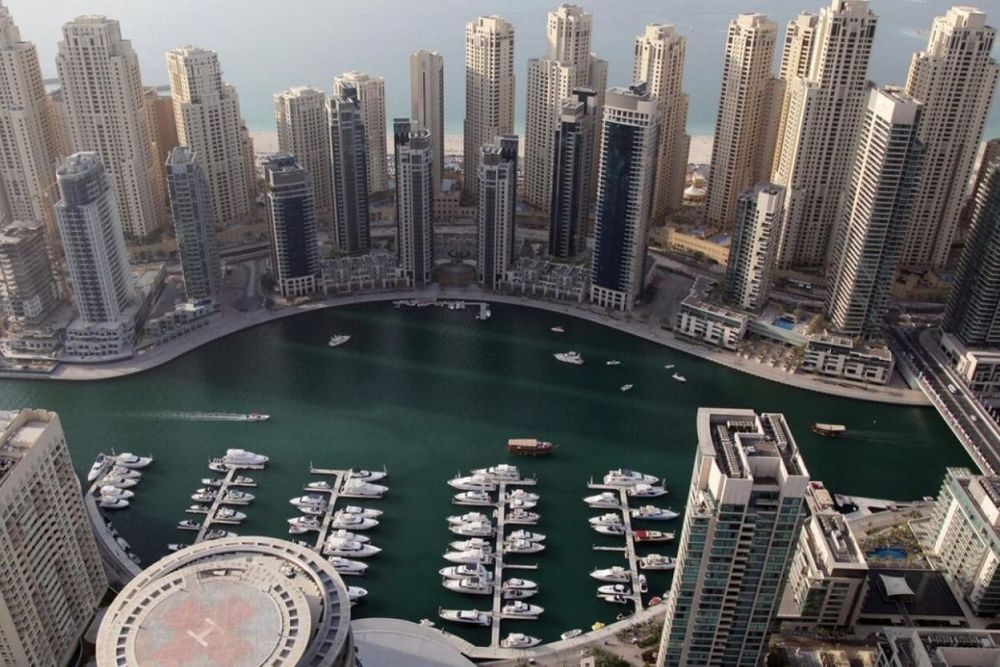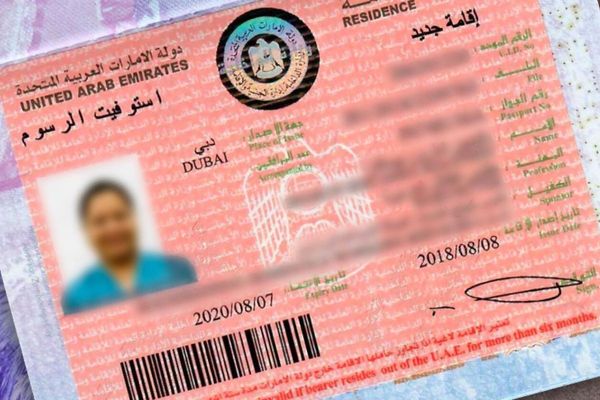A businessman named Najam-us-Saqib from Dubai purchased a small apartment in a cheaper area outside the main city. He decided to rent out that apartment and now lives in a different area called Al Qusais, where he is renting another apartment. He chose this location because it's close to his children's schools and his office.
Najam is one of many people who have transitioned from being renters to becoming homeowners. This decision has helped him save money on rent and also see the value of his property increase over time. The demand for housing has been high in Dubai, especially with an influx of wealthy individuals moving to the city in the last couple of years.
Dubai's property market is experiencing an unprecedented demand from both local residents and foreigners. While foreigners are seen as dominating property sales, more and more residents are shifting from being renters to becoming buyers. Several factors are attracting residents to buy properties, such as the availability of ready-to-move-in homes, higher returns on investments, cost savings on rent, a growing population, and increased salaries.
According to Rizwan Sajan, the chairman and founder of Danube Properties, a prominent private developer, these are exciting times for developers and investors in Dubai. Confidence is high, and unlike the previous boom in 2008-09, the current trend involves genuine end-users who want to buy properties either for rental purposes or to live in themselves.
The transition from renting an apartment to owning a home offers several advantages, according to Imran Farooq, the CEO of Samana Developers. First, it eliminates the need to pay rent, as homeowners only have to cover mortgage payments. Additionally, becoming a homeowner allows individuals to become landlords themselves, giving them the opportunity to rent out their properties for investment purposes. This opens up the possibility of owning multiple properties that they can afford and use for generating rental income.
Here are the major factors driving the increasing trend of tenants in the UAE becoming buyers:
Rise in population
The population in Dubai is steadily increasing, with a current count of 3.612 million as of August, showing a growth of more than 50,000 people this year. The city is attracting not only high-net-worth individuals but also many professionals who are seeking better opportunities and a brighter future. In 2022, the UAE welcomed 5,200 millionaires, the largest number globally. This year, it is expected to attract another 4,500 high-net-worth individuals, the second-highest figure worldwide. The influx of expatriates has created a strong demand for apartments, resulting in rising rents. As a consequence, long-time residents are increasingly considering the option of buying freehold properties as an alternative to renting, as it offers greater stability and potential financial benefits in the long run.
New launches mean more options
To meet the high demand in the real estate market, developers are taking advantage by launching new projects. For instance, Danube Properties, known as the UAE's fastest-growing developer, has introduced 9 projects in the last 18 months, averaging one project launch every two months.
According to a report from real estate consultancy Asteco for the first quarter of 2023, around 32,000 residential properties, including both villas and apartments, are expected to be handed over in Dubai this year. This indicates a stable supply of new housing units to cater to the increasing demand in the market. These new project launches provide more options for tenants to consider becoming homeowners and landlords themselves.
A mature market
The local property market in Dubai is now considered more mature, and tenants are aware of this positive change. With the implementation of more laws and regulations compared to the situation in 2008-09, tenants feel confident that their units will be delivered on time, and they will not lose their hard-earned money.
During the 2008-09 crisis, investors faced losses as developers struggled to complete projects due to a credit crunch. However, in the recent pandemic crisis, the situation was different. While there might have been slight delays caused by pandemic restrictions, projects are generally progressing as scheduled.
The government has also taken steps to tighten the rules for developers. Before starting a project, developers are required to pay a certain amount as a bank guarantee to the Land Department. Additionally, buyers' money is placed in an Escrow account, and the Land Department conducts property audits to ensure that the money collected by developers from investors is properly managed in the Escrow account.
According to Rizwan Sajan, these measures demonstrate that the Land Department is closely monitoring developers to safeguard investors' funds and maintain transparency in the real estate market.
Availability of ready-to-move-in properties
The availability of numerous ready-to-move-in properties in Dubai has led many tenants to opt for buying instead of continuing to rent. This choice allows them to convert their monthly rental payments into equated monthly installments (EMI) towards their own property. Major developers like Damac Properties and Danube Properties are actively capitalizing on this trend by offering attractive deals to tenants, including mortgages of up to 85% of the property's value and low monthly payments starting from as little as Dh3,600 per month. This approach has become increasingly popular as it provides tenants with the opportunity to become homeowners while enjoying manageable monthly payments.
Cheaper properties, higher returns
Properties in Dubai offer a significant cost advantage compared to similar properties in Europe, Asia, and the US. According to Knight Frank's Wealth Report, prime property prices in Dubai are 20% to 80% cheaper than major cities like Monaco, Hong Kong, New York, London, Geneva, Paris, Beijing, and Tokyo. For example, with around $1 million, you can purchase 105 square meters of property in Dubai, while in Monaco, it would only get you 17 sqm, in Hong Kong 21 sqm, in New York 33 sqm, in London 34 sqm, in Paris 43 sqm, and in Tokyo 60 sqm.
Furthermore, the return on investment (ROI) in Dubai is up to 12%, making it an attractive prospect for residents looking to switch from being tenants to becoming property buyers. This combination of lower property prices and higher ROI provides strong incentives for people to invest in Dubai's real estate market and own their own homes instead of continuing to rent.
High rents
According to CBRE, average rents in Dubai surged by 22.8% in the year leading up to June 2023, while average property prices experienced the strongest growth since late 2014, increasing by 16.9% in the same period. The steep rise in rents is motivating tenants, especially those who plan to reside in the country for an extended period and hold retirement, golden, or silver visas, to seriously consider buying their own properties. The allure of increasing property prices is also a contributing factor. In fact, many Asians are selling their assets in their home countries and relocating to Dubai.
As rental prices continue to soar, Imran Farooq, CEO of Samana Developers, observes that numerous Dubai residents are now seriously considering purchasing a property to avoid facing unfavorable rent increases imposed by landlords. Even individuals with modest incomes are exploring the possibility of co-owning properties. He anticipates that this trend will persist for the next two years, driven by the recent economic prosperity in Dubai.
Rising salaries
During the post-pandemic economic recovery phase, the UAE experienced a significant increase in demand for talented professionals. To retain the best talent, companies responded by raising salaries. A notable example is the Emirates Group, which increased salaries and allowances for its 100,000-plus employees following a record profit in 2022-23. This rise in income has resulted in substantial savings for residents, motivating them to seek better investment opportunities.
With banks offering lower returns on savings compared to the potential gains from property investment, many residents have chosen to invest in real estate. They prefer to buy and rent out apartments or live in them themselves instead of depositing their funds with banks to earn interest. This trend is driven by the perception that property investment offers more favorable returns, making it an attractive choice for residents looking to grow their wealth and make the most of their increased income.
News Source: Khaleej Times









